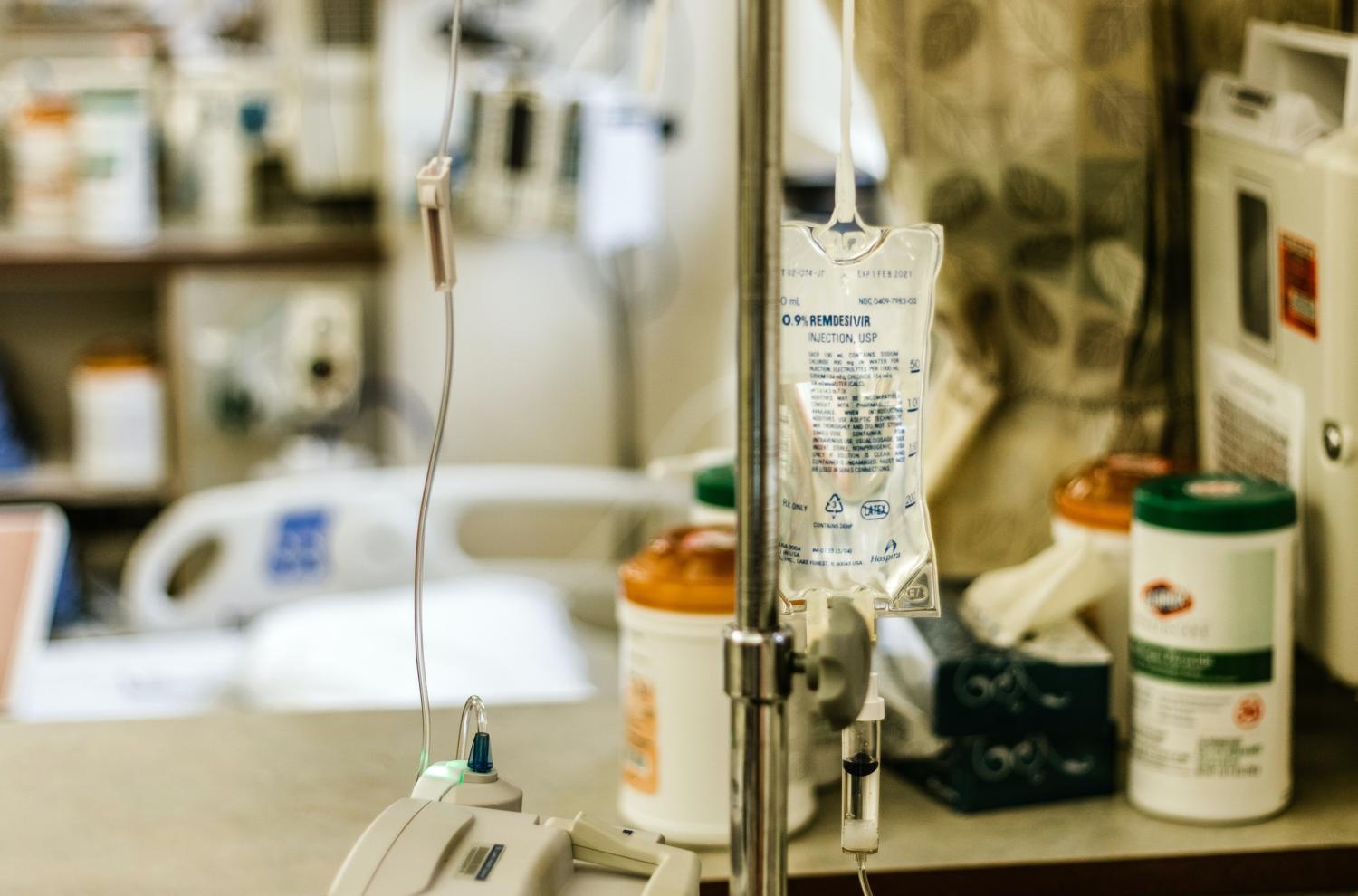More than 2 years after the Democratic Republic of the Congo (DRC) began grappling with the world's second largest Ebola outbreak , the US Food and Drug Administration (FDA) yesterday approved the antibody cocktail Inmazeb for the treatment of Ebola virus.
Made by Regeneron, the monoclonal antibody cocktail is a combination of atoltivimab, maftivimab, and odesivimab-ebgn, which all work to block the virus' glycoprotein from attaching and entering a healthy cell. In a clinical trial conducted during the outbreak in the North Kivu region, those treated with Inzameb (then known as REGN-EB3) experienced 33.5% mortality after 28 days; the World Health Organization (WHO) reports the virus' mortality rate to vary between 25% and 90%, depending on the outbreak.
"Decades of investment in our VelociSuite rapid response technologies, the dedication of world-class scientists, and the courageous contributions of healthcare providers and patients, together with remarkable cooperation between leading international health organizations and governments, have led to this important moment," said George D. Yancopolous, MD, PhD, president and chief scientific officer of Regeneron, in a press release.
To help control the Ebola virus outbreak, Inmazeb is being administered for free in the DRC with the support of the Biomedical Advanced Research and Development Authority (BARDA), and Regeneron has stated that it is working with non-governmental organizations and public health agencies to make sure the treatment is accessible to low- and middle-income countries. Additionally, BARDA has a six-year purchase agreement for Inzameb to aid the United States' readiness for public health emergencies.
"Today's approval highlights the importance of international collaboration in the fight against Ebola virus," said John Farley, MD, MPH, director of the Office of Infectious Diseases in the FDA's Center for Drug Evaluation and Research, in a press release. "The urgent need for advanced therapies to combat this infectious disease is clear, and today's action is a significant step forward in that effort."
The PALM Trials looked at four Ebola treatments
Inmazeb was not the only treatment to be tested during its clinical trial: Three other candidates—mAb114, ZMapp, and remdesivir—were also looked at, and patients receiving these drugs had 35.1%, 51.3%, and 53.1% day 28 mortality rates, respectively. All under the PALM (PAmoja TuLinde Maisha) Trial, 681 patients participated from Nov 20, 2018 to Aug 9, 2019, and additional doses of Inmazeb were given to 228 patients. After the trial concluded, Inmazeb received priority review by the FDA.
The treatment—an intravenous infusion of 50 milligrams (mg) of each antibody per kilogram—was studied in pediatric and adult patients, including newborns whose mothers were infected by Ebola virus. The earlier the treatment was administered, the more effective it was, although researchers remind providers not to administer a live Ebola virus vaccine and Inzameb at the same time.
Adverse side effects were seen in at least 10% of Inmazeb patients, with common ailments including fever, chills, tachycardia, tachypnea, and vomiting, although they could also have been caused by the Ebola virus itself. Except for more severe chills, the side effects were comparable to Zmapp's effects.
DRC goes 15 days case-free, WHO appoints experts to lead sexual abuse probe
As of Oct 14, the DRC has gone 15 days without any new cases of Ebola virus infections being reported. Prior to that, 1 case was confirmed on Sep 30 and on Sep 21, both as part of the 124-case outbreak in the DRC Equateur province. While the lower number of new cases is good, surveillers continue to worry about future responses due to the COVID-19 pandemic and the sometimes limited accessibility to infected populations.
The country is now in its 11th outbreak of Ebola virus. International aid organizations have provided support with millions of dollars in funding, workers, test and treatment resources, and more, but their efforts have been tainted with sexual abuse allegations. An investigation published in September by The New Humanitarian and Reuters interviewed 51 women who testified that men claiming to be with organizations such as the WHO propositioned or forced them to have sex.
Soon after, the WHO said it was outraged by the reports and that it would aggressively investigate the allegations. In a related development today, it announced that it has appointed two cochairs to an independent commission that will investigate the matter. They are Aïchatou Mindaoudou, former minister of foreign affairs and of social development of Niger who has worked for the United Nations in Ivory Coast and Darfur, and Julienne Lusenge from the DRC who is an internationally known human rights activist and advocate for sexual violence survivors in conflict settings.


















